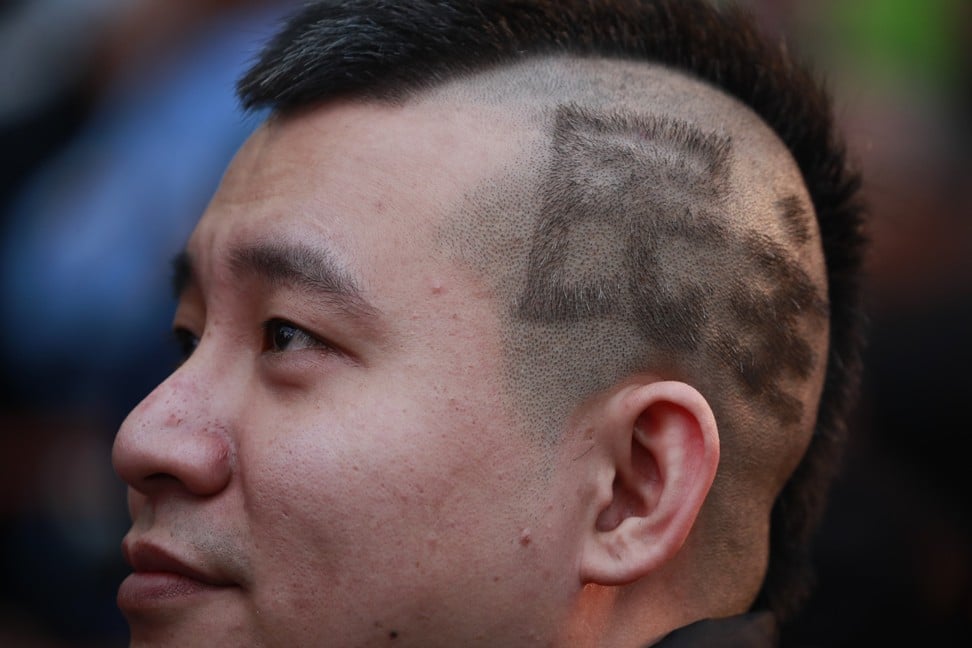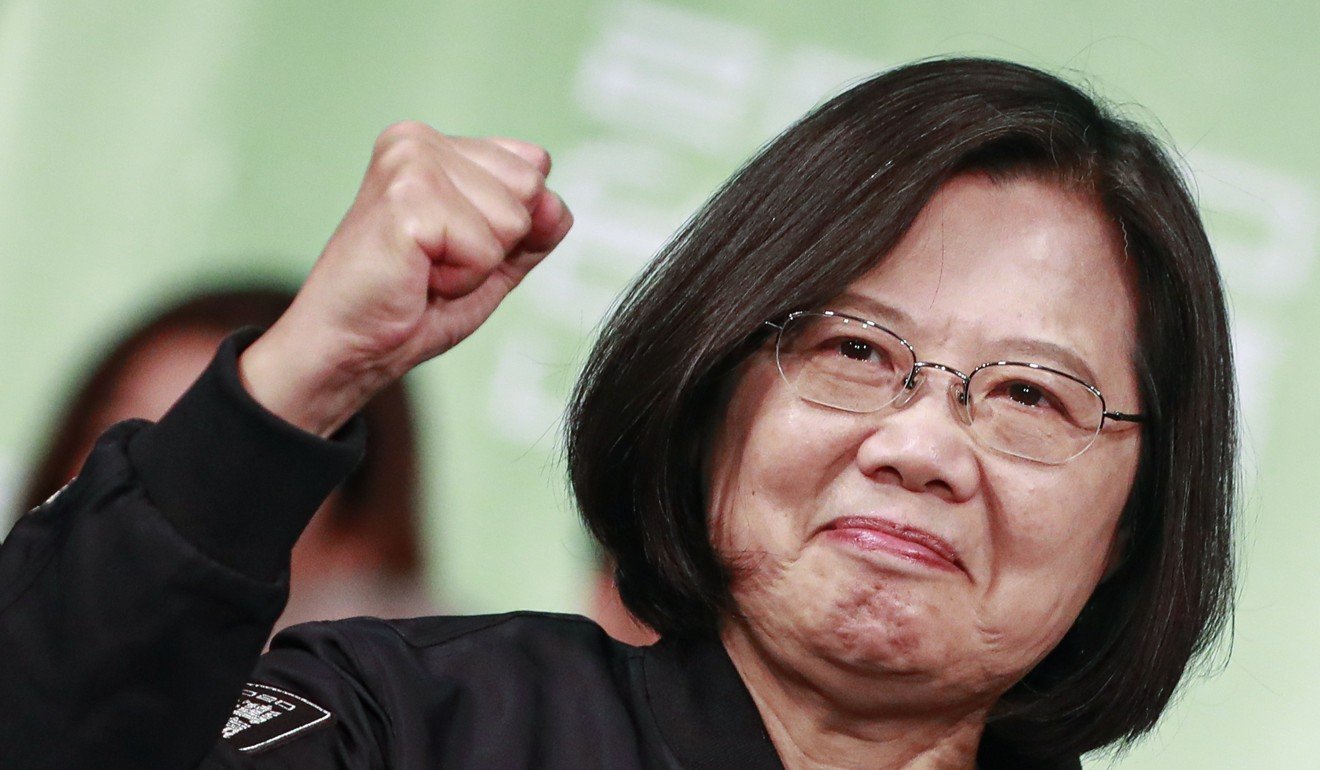
Taiwan election: Hong Kong won it, Beijing lost it
- Beijing’s pressure on Taipei gave the Democratic Progressive Party a boost in the polls, on its way to a landslide victory over the Kuomintang
- The vote also reflects the people’s views on the relationships between Washington, Beijing and Taipei under the presidencies of Trump, Xi and Tsai
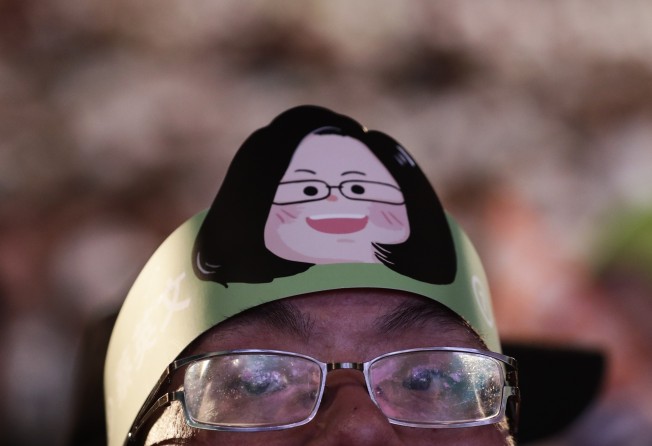
When it comes to crucial elections for the highest office, there is no place in the world where outside factors take precedence over local issues – other than in Taiwan.
Mainland China’s increasingly hawkish attitude towards the island, Hong Kong’s anti-Beijing protests, and Washington’s support of the democratic aspirations in those two Chinese communities have all contributed to Taiwanese President Tsai Ing-wen and her ruling Democratic Progressive Party’s (DPP) landslide victory in the just-concluded presidential and legislative elections.
In the self-ruled island’s presidential race on January 11, Tsai won a record 8.2 million votes, or 57 per cent of the total, against 5.5 million votes (38 per cent) for her main opponent, Han Kuo-yu from the Kuomintang (KMT). It is a result few expected just a year ago, when various opinion polls suggested Han had a lead over Tsai with a margin of more than 30 percentage points. The DPP also won a comfortable majority of 61 seats against the KMT’s 38 in the 113-member parliament or Legislative Yuan.
In the past six presidential elections, voters have gone back and forth between the independence-leaning green camp led by the DPP and the Beijing-friendly blue camp led by KMT.
Tsai and the DPP suffered a crushing defeat in the November 2018 local elections, largely due to a flagging economy and unpopular domestic policies, while Han won a resounding victory in Kaohsiung, a DPP stronghold, largely on a platform of economic improvement. Han promised to maintain closer ties with Beijing to bring in more capital, tourists and other economic benefits. Tsai used her political capital on pension and labour reforms, and spearheading a socially progressive agenda to pass a controversial law legalising same-sex marriage.

In practice, the midterm local elections often set the tone for the presidential and legislative elections. In 2018, pundits saw little chance of Tsai winning a second term, as her popularity rating fell to a low of 24.3 per cent.
The embattled president and her DPP made a remarkable turnaround only after Chinese President Xi Jinping’s January 2019 announcement that Taiwan must be unified under “one country, two systems”. Tsai’s fierce rebuff of Xi’s statement saw her support rating leap 10 percentage points in three weeks.
Most analysts agree that the Hong Kong protests have played an even bigger role in boosting Tsai and the DPP’s status at the expense of Han and the KMT. Tsai’s support jumped sharply following the outbreak of protests in the city last June, and this support has been steadily advancing apace with developments in Hong Kong since then. In the months leading up to the election, Tsai has had a two-digit lead over Han in opinion polls.
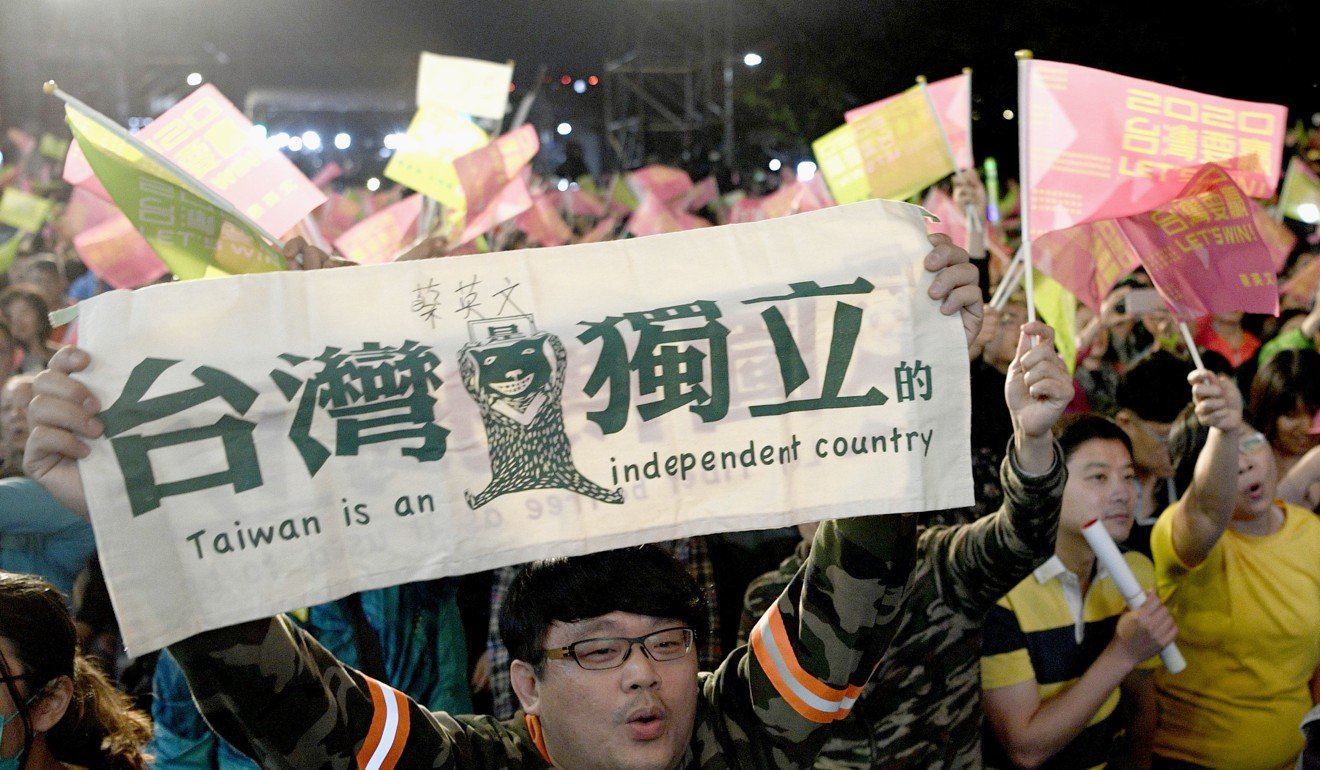
Beijing’s mishandling of the situation in Hong Kong had sparked fears for Taiwan’s national security and democracy, and brought the threat posed by the mainland to the forefront for voters. The demonstrations, now in their eighth month, suggest Beijing’s cherished one country, two systems formula has failed miserably in the former British colony – a stance reflected in Taiwan, where only 4.5 per cent of Taiwanese currently support the idea of “unification” with China. Even Han and the KMT declared their opposition to the formula.
Tsai’s support of Hong Kong’s protesters, including offers of refuge in Taiwan, drew Beijing’s ire but won the hearts of many Taiwanese, particularly the young.
The Hong Kong saga has hardened anti-Beijing sentiment on the island and resulted in many voters shifting their support from the KMT to the DPP. The ability of parties to resist pressure for unification has become the most important issue for voters.
Strengthening relations between Washington and Taipei amid escalating Sino-US tensions also helped Tsai and her party. US President Donald Trump is arguably the most pro-Taiwan president since Richard Nixon, who visited China in 1972. Since Trump took office in 2017, he has shifted away from Washington’s decades-old policy of “engagement” with Beijing to one of “containment”. He also signed the Hong Kong Human Rights and Democracy Act of 2019, which was overwhelmingly approved by Congress with 417 votes to 1. On top of this, Trump has signed several Taiwan-friendly bills, approved more arms sales to the island and ordered more frequent passage of American warships through the Taiwan Strait.
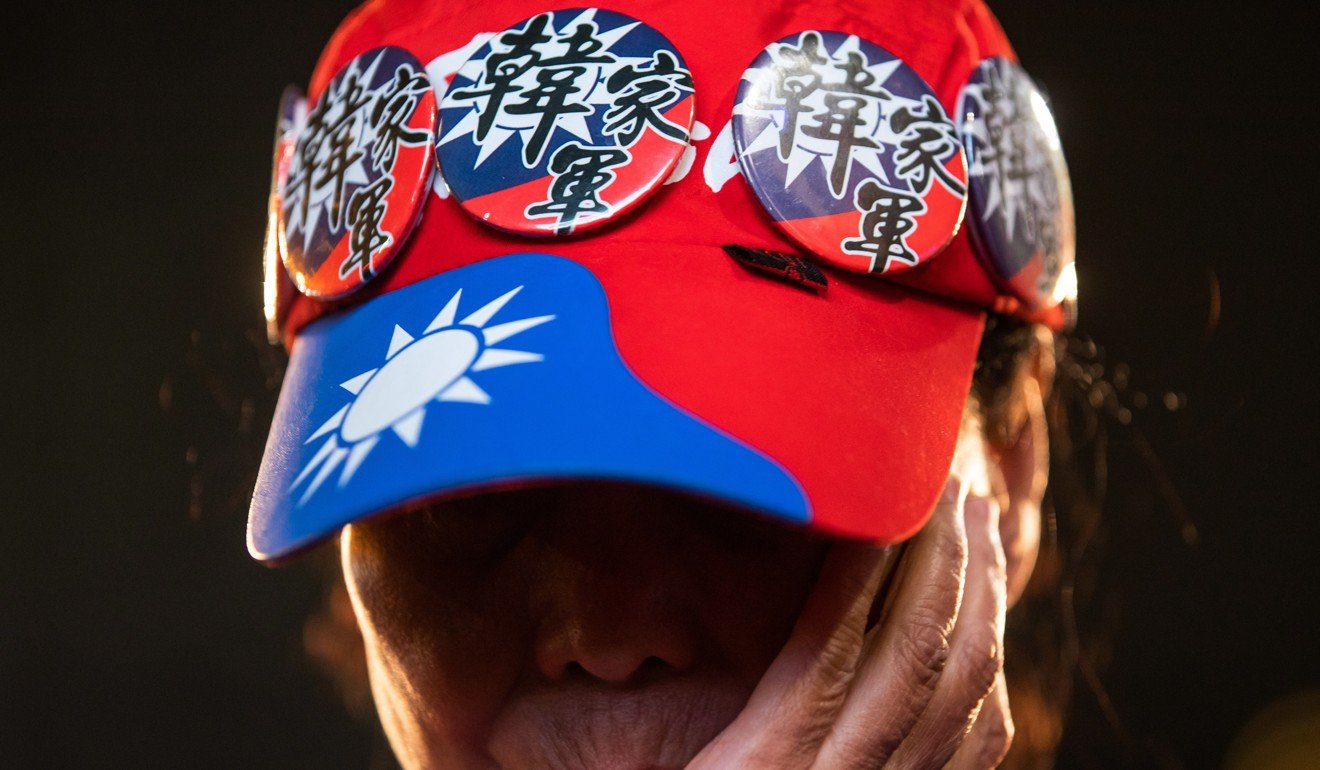
But it is Beijing’s increasingly hardline policies that have alienated the Taiwanese. Since Tsai came to power in 2016, Beijing has stepped up pressure on Taiwan, cutting off formal communications, restricting the numbers of mainland tourists going to the island, blocking Taiwan’s participation in international organisations, and squeezing the island’s space in the international arena by poaching its diplomatic allies. Beijing has convinced seven of Taipei’s diplomatic allies to switch recognition in the past four years. The People’s Liberation Army has also increased its manoeuvrings close to the island.
Even Tsai has admitted it was growing pressure from Beijing that helped her to a landslide victory.
Taiwan’s elections have underscored the rising support for a distinct Taiwanese identity among the island’s people. They also emphasised how much they cherish their free and democratic way of life, which is not accessible to mainland Chinese. They have also widened the gulf across the Taiwan Strait.
The fact is that fewer and fewer people in Taiwan have any interest whatsoever in political reunification with the mainland, thanks to Beijing’s increasingly hardline policies.
The latest elections suggest that Taiwan’s long-term future is still an open question, as three decades of interaction across the strait have failed to find any feasible solution. Surveys in March and April 2019 by the China Impact Studies group at Taiwanese think tank Academia Sinica found more than 73 per cent of respondents did not want the island to “unify with mainland China even if it reaches the same level of economic and political development as Taiwan”. The figure has shot up to more than 93 per cent among respondents between the ages of 20 and 34.
The past year saw political crises in three areas – Beijing’s relations with Washington, as well as its relations with people in Hong Kong and Taiwan. It also saw increasing US involvement in affairs in these two Chinese communities, which Beijing believes are internal affairs that brook no foreign interference.
Taiwan’s votes have reflected the people’s views on the fast-changing trilateral relationship between Washington, Beijing and Taipei under the presidencies of Trump, Xi and Tsai. They have underscored the widening gap in values, ideologies and beliefs between communist leaders in Beijing and people in free societies, be it in Hong Kong, Taiwan, the US or elsewhere. ■ ■
Cary Huang is a veteran China affairs columnist, having written on the topic since the early 1990s
Purchase the China AI Report 2020 brought to you by SCMP Research and enjoy a 20% discount (original price US$400). This 60-page all new intelligence report gives you first-hand insights and analysis into the latest industry developments and intelligence about China AI. Get exclusive access to our webinars for continuous learning, and interact with China AI executives in live Q&A. Offer valid until 31 March 2020.
